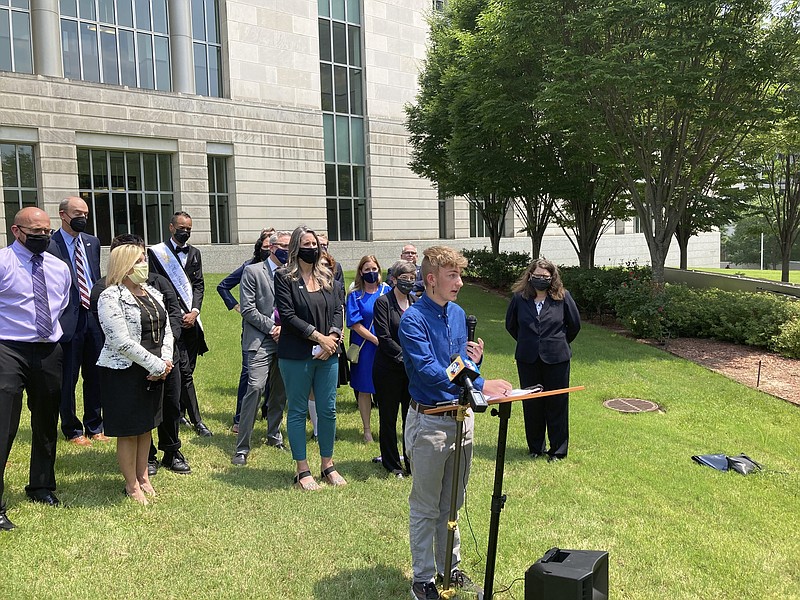The second day of the second half of a bench trial over the state's first-in-the-nation ban on gender affirming health care concluded after just over a half day Tuesday, following testimony from a sociologist and a plastic surgeon called by the attorneys defending the law.
Mark Regnerus, a sociologist with the University of Texas at Austin, testified remotely from Europe, where he is attending a conference. His testimony was meandering, repetitive and often confusing as U.S. District Judge James M. Moody Jr. struggled at times to understand the relevance of his testimony to the matter at hand.
Regnerus said he had reviewed numerous works by other researchers. He said had observed a bias among providers treating transgender patients, a bias toward affirmation rather than treatment of underlying mental or emotional conditions. The sociologist also testified that researchers had faced pressure to agree with treatment models based on affirmation and that a number of groups exist that "don't feel like they have the freedom to object."
"There is significant concern that there's a rush to treat minors," Regnerus said, but when asked what research he had done in the area, he continued to point to the work of others that had fallen under heavy criticism.
"All I'm hearing is some people are forming opinions which are causing debate," Moody said at one point. "All he's telling me is there was a report and there was back flow and that shows there was criticism ... What does it have to do with the decision I have to make?"
Act 626 of 2021 — the Save Adolescents From Experimentation Act — was passed in March 2021 after both the state House and Senate voted by large margins to override a veto by Gov. Asa Hutchinson. It was challenged the following month in a suit filed by the American Civil Liberties Union. Three months later and a week before the law was set to go into effect, Moody issued a temporary injunction blocking the ban from being enforced while the matter is in court.
A three-judge panel on the 8th U.S. Circuit Court of Appeals upheld Moody’s injunction in August.
The court ruled just over a week ago that it would not take up the matter for reconsideration by the full 8th Circuit, denying an appeal motion of Moody’s ruling filed by Attorney General Leslie Rutledge’s office.
The lawsuit challenging the ban was filed on behalf of four minor plaintiffs, their parents and two physicians. It contends the law violates the equal protection and due process clauses of the 14th Amendment and free speech protections under the First Amendment.
